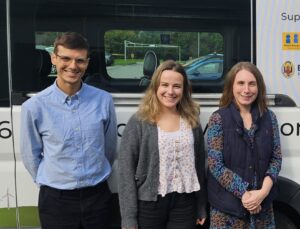New research by Action with Communities in Rural England (ACRE) paints a picture of how organisations supporting rural communities have adapted post pandemic, and in response to the cost-of-living crisis.
A lack of transport was cited as the biggest concern locally by 37 county-based charities working across England in support of rural communities in a recent survey, overtaking issues such as the pandemic and access to community facilities which were more obvious worries in 2020.
Concern for health and care provision, loneliness and isolation and a lack of affordable housing also featured prominently.
Respondents to the survey also reported significant increases in demand for their services across the board, most notably with respect to initiatives that seek to improve health and wellbeing and support with fuel poverty. In the past year alone, they responded to over 28,000 rural community groups – not far off the levels of demand seen at the height of the pandemic.
These changes appear to be linked to the circumstances that many rural households are finding themselves in due to cost-of-living pressures. As one respondent put it:
“We’re seeing more and more people in rural areas falling into poverty as a result of energy, food and transport costs. Access to services is becoming more difficult, and young and old people are most likely to be adversely affected and more isolated as a result”.
Richard Quallington, ACRE’s Executive Director said, “This year’s survey paints a picture of the changing fortunes of rural communities. Many of the issues such as poor transport, access to services and a lack of affordable housing are not new, however the cost-of-living crisis is clearly resulting in an increasing number of people approaching members of the ACRE Network for support. It’s great to see our members flexing their services in response to this demand and supporting new community initiatives, but there is a risk they may become overstretched without significant new investment from funders.”
These latest figures reflect the findings from RSN’s Cost of Living Survey earlier this year.
RSN Chief Executive Kerry Booth says she is saddened things seem to have got worse: “At the time we raised this with government and expressed our concerns that the situation for rural communities would only get worse, especially with interest rates rising. We warned them that without action, our rural communities risk being left isolated and vulnerable and these latest findings seem to show just that. I urge all politicians to act swiftly to address this as many rural communities are facing a cold, bleak and lonely winter.”























